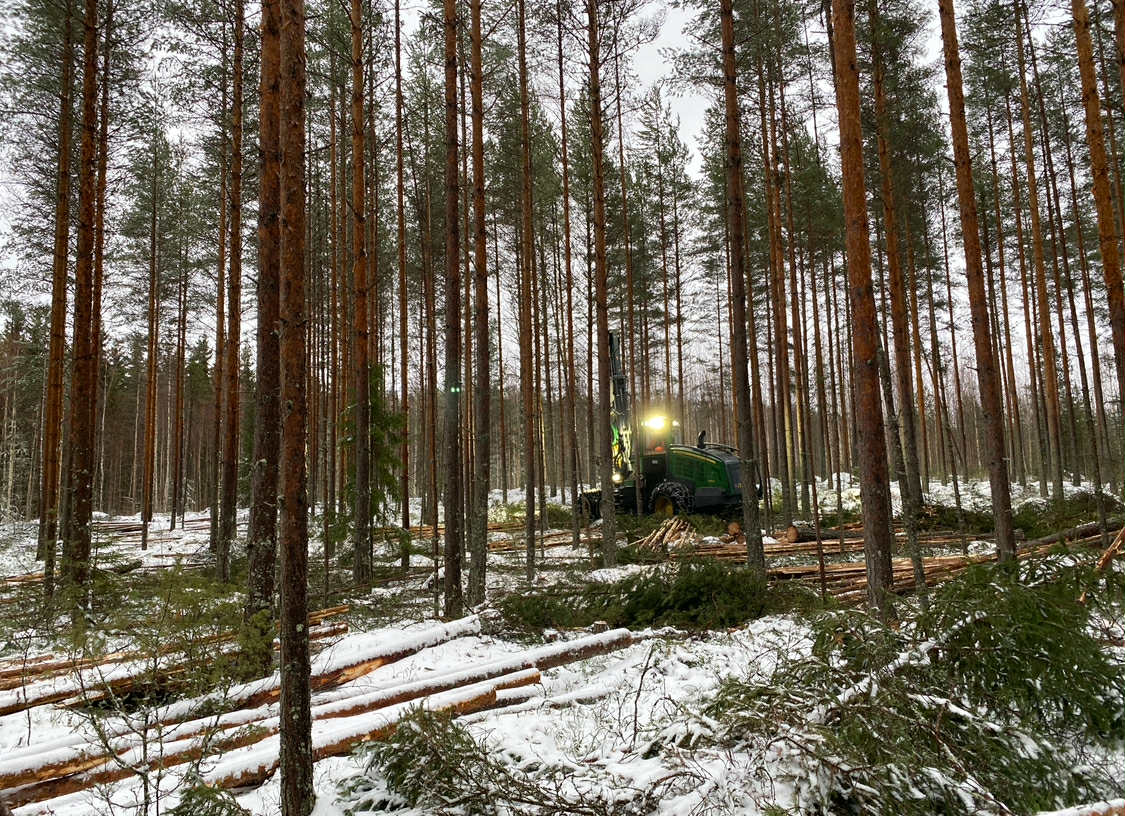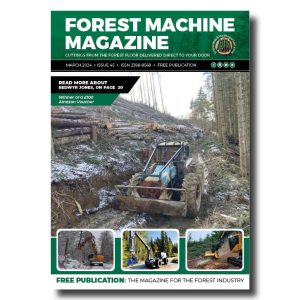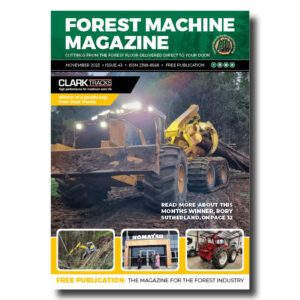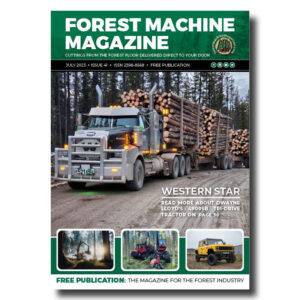Sweden and Finland are calling for a fresh look at the EU’s forestry climate targets! These northern nations recognize the critical importance of reevaluating strategies to effectively tackle climate change and promote sustainable forest management.
Sweden and Finland could face “dire” economic consequences if they are compelled to harvest less forest for timber to meet their EU-mandated climate targets, the two nations announced this week.
As part of the European Union’s plans to achieve net zero emissions by 2050, Sweden and Finland have been assigned the task of increasing the amount of CO2 sequestered by forests.

-
That’s a remarkable amount of work hours for a single machine, the Norcar 600 owned by Erkki Rinne is taken well care of, it even has the original Diesel engine.
-
Kieran Anders is a forestry contractor working in the lake district. His work involves hand cutting and extracting timber using a skidder and tractor-trailer forwarder.
-
It is not possible to eliminate chain shot, but there are simple steps that can be taken to reduce the risk.
-
Arwel takes great pride in the fact that the mill has no waste whatsoever, “the peelings are used for children’s playgrounds, gardens and for farm animals in barns in the winter and the sawdust has multiple uses in gardens and farms as well.
-
Timber hauliers need to encourage young blood in, and also look after the hauliers we have, we need make the sector a safe and positive place to work.
FIND US ON
But both countries say they are on track to miss the EU’s Land Use, Land-Use Change and Forestry (LULUCF) targets for 2021-2025 and 2026-30, blaming climate change for slower tree growth and the war in Ukraine for increased demand.
“The EU’s current framework for forest use … is a major problem and, if not revised, would lead to unreasonable and unjustified restrictions on Swedish forestry,” Swedish Prime Minister Ulf Kristersson said on X late on Monday.
“To in practice severely restrict large parts of Nordic forestry is the wrong path to take.”
Finland and Sweden urged the EU to adopt a “flexible” approach to assessing compliance with LULUCF targets.
Industry and environmental groups both consider forests a vital part of fighting climate change. Forestry companies highlight the economic benefits, sustainable management, and the role of biofuels and wood in replacing fossil fuels, plastic, and concrete.
However, scientists warn that over-logging, monoculture, and other industry practices are diminishing forests’ ability to absorb carbon dioxide, risking Europe’s climate goals.
In a joint letter to European Commission President Ursula von der Leyen, Sweden and Finland stated that their targets—an increase in CO2 absorption of about 4 million tonnes annually by 2030 for Sweden and 3 million tonnes for Finland—are unrealistic.
The two countries added that reduced logging would “entail dire consequences for our economies as well as labour markets.”
Forests cover roughly 70% of Finland and Sweden. Wood products constitute over 10% of Sweden’s exports and nearly 20% for Finland. Over 200,000 people work in the sector.
EU governments are currently debating the 2040 climate target and the role of forests remains a key issue.
Sweden and Finland support an EU-wide net emission reduction target of 90% by 2040, encompassing both emissions and removals, but emphasise that targets must be realistic. “A successful future for Europe relies on a successful clean transition, combining growth, jobs, and decreased emissions,” they stated.

Sign up for our free monthly newsletter here
Contact forestmachinemagazine@mail.com to get your products and services seen on the world’s largest professional forestry online news network.
#homeoflogging #writtenbyloggersforloggers #loggingallovertheworld
Written by loggers for loggers and dedicated solely to the equipment used in forestry operations.






